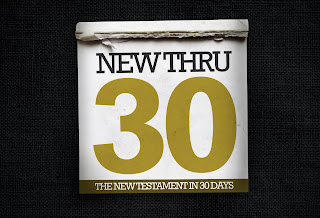This darkness is, indeed, strong, for it has sucked into its vortex of betrayal and violence this innocent man lifted up on the cross between these two thieves. They were spreaders of the darkness. They were willing participants with the darkness. But Jesus? No. He was pure light.
What is he doing on a cross? Crosses are for those who create and spread darkness. How can he be here, nailed between two thieves, two criminals? How can the darkness snuff out the light? Isn’t it supposed to work the other way around?
Maybe that’s why the mocking criminal was so cynical. If you are the King of the Jews, if you are God’s Messiah, then prove it by saving yourself. Pull the nails out of your hands and feet. Get down from that cross. Call on the angels of God to rescue you. And oh by the way, save me too. It’s all too easy to become cynical in the midst of such overwhelming darkness.
What do you expect, says the thief who makes the good confession. What do you expect when you choose to spread the darkness by breaking God’s commands? Did you think there would be no consequences? Did you think that his light would shine unhindered by all that darkness you’re throwing around? What did you think would happen when you sinned? How can you blame God for this darkness? He has not forgotten us. We have forgotten him.
Don’t you fear God? This man Jesus has done nothing wrong, and yet he’s in the same position as you and I. We deserve this cross because we have thrown darkness over the light. But he is the light! What’s happening to us is the work of justice. What’s happening to him is either a tremendous mistake or the most horrible evil that has ever been committed on the face of the earth.
We complain about the darkness that overwhelms us, but, even if in some small way, we all contribute to that darkness. We all sin. We all do wrong to each other. But Jesus? He never sinned. He never did any one any wrong. And yet the darkness consumed him. He was pure light, but still the darkness covered him as he died there, suffocating on a roman cross.
We push all of the blame onto God, as though he were some cosmic, supernatural janitor we hired to clean up all of our metaphysical messes. We complain that he has forgotten his duty of wiping our noses and cleaning up all the filth we have spread throughout the house. This darkness is his fault, we say bitterly, and what has he done about it? What, indeed?
Has God forgotten? Has he turned his back? Has he abandoned us? Does he not remember? Where have you gone, God? Where are you, God, when even your most innocent of servants succumbs to the power of the darkness and is tortured to death on a cross? Could you not even save your Chosen One? Where have you gone, O God?
I am here. Next to you, on this cross, this ancient gallows. Do you think that I have forgotten you? How can I forget you when I am being crucified right next to you? I suffer with you. I suffer for you. You bear the burden placed upon you by justice. I bear the burden placed upon me by mercy.
I have come, not to succumb to the darkness, but to subdue it, and break it, once and for all. Oh you may not understand now, but it’s only Friday. It’s only Friday, and Sunday is just a day away.
So we say, yes, be angry, but know that there is a place for your anger, and that place is here, at the cross. If you want to shout at God because of all this darkness, go ahead. But know that the one to whom you raise your voice is the one who is raised up on the cross and killed. You are not shouting into the air. You are shouting at a man, bloodied and beaten, mocked and betrayed, pierced and tortured, nailed to the Roman instrument of capital punishment. Know that your God knows, intimately, this darkness that plagues us all.
No, God has not forgotten. We commemorate tonight his very act of remembering the messes of darkness we have got ourselves into. He has remembered us.
And so the confessing thief turns to Jesus and says, “Jesus, remember me when you come into your kingdom.” Remember me. Remember me, Jesus. When you finally become king, Jesus, remember me. What an interesting thing to say to a man on a cross.
Our cry is the same as that of the poor, dying criminal. Remember me, Jesus! When darkness has surrounded me, O Jesus, remember me! Don’t forget about me. Don’t look past me. I’m still here. I’m still hanging on. When you come into your kingdom, remember me.
God has not forgotten you. We remember the cross tonight, that horrible place of death where God remembered you. He has not forgotten. He has not turned away. Jesus remembers you.


